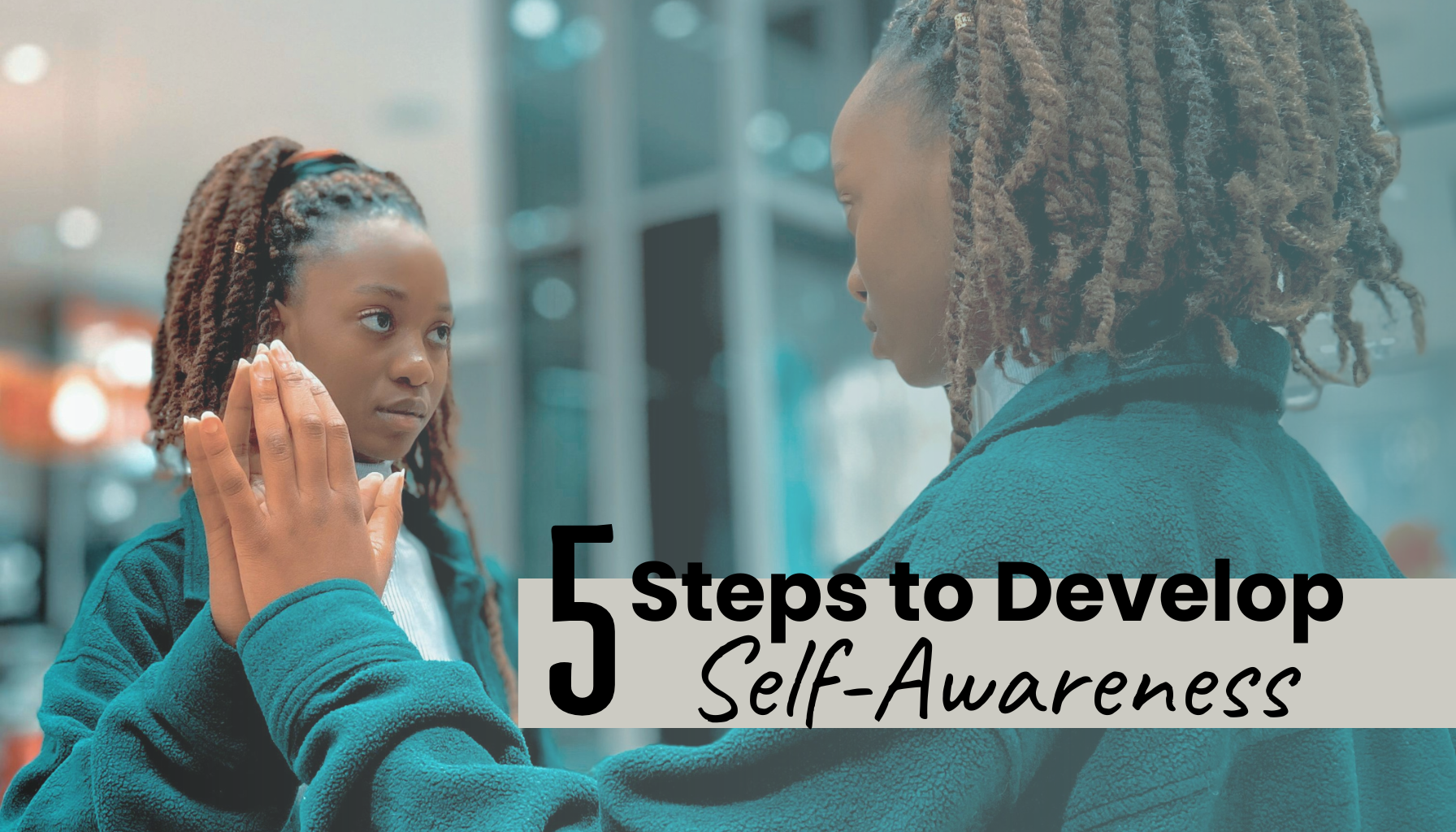Self-awareness is one of the most essential elements of personal development. It allows you to recognize your emotions, understand your behavior patterns, and make intentional decisions that align with your values. When you’re more self-aware, you’re more in control of your life. In this article, we’ll explore five practical steps to deepen your self-awareness and begin your journey toward real, lasting growth.
What Is Self-Awareness?
Self-awareness is the ability to observe and reflect on your thoughts, feelings, and actions. It involves two levels:
- Internal self-awareness: understanding your values, passions, reactions, and goals.
- External self-awareness: understanding how others perceive you.
Developing both forms allows you to live with more clarity, emotional balance, and authenticity.
Step 1: Practice Mindful Reflection Daily
Self-awareness begins with slowing down. Our days are full of distractions, and it’s easy to operate on autopilot. That’s why daily reflection is so powerful.
Try This:
- Spend 5–10 minutes each night journaling about your day.
- Ask questions like:
- What did I feel today?
- What triggered those feelings?
- What decisions did I make that I’m proud of—or not proud of?
The more you reflect, the more patterns you’ll notice.
Pro tip: Use a simple journal or a notes app on your phone to stay consistent.
Step 2: Identify Your Emotional Triggers
Self-aware people can name their emotions and understand what causes them. If you’re not sure why you feel angry, anxious, or disappointed, you’re likely reacting rather than responding.
How to do this:
- Throughout the day, pause and name what you’re feeling.
- When a strong emotion arises, ask:
- What just happened?
- Why do I feel this way?
- Is this emotion connected to something deeper?
Over time, you’ll notice which people, situations, or thoughts tend to “push your buttons”—and you’ll respond more calmly.
Step 3: Seek Honest Feedback
Sometimes we have blind spots. Asking others for feedback can be uncomfortable, but it’s a shortcut to growth.
Ask people you trust:
- “What’s one thing you think I could improve about how I communicate?”
- “Is there something I do that I don’t seem aware of?”
- “How do you experience me when I’m stressed?”
Listen with openness, not defensiveness. Even if you don’t agree, reflect on what they said. Feedback is a mirror that reveals what you might not see on your own.
Step 4: Clarify Your Core Values
Self-awareness isn’t just about noticing what you do—it’s about understanding why you do it. Your values are your internal compass. When you’re clear on your values, you make decisions more confidently and live with purpose.
Exercise:
- Write down what truly matters to you. Examples:
- Freedom
- Honesty
- Growth
- Creativity
- Compassion
Then ask:
- Am I living in alignment with these values?
- Where am I compromising my values—and why?
Living against your values often leads to inner conflict and dissatisfaction.
Step 5: Create Space for Stillness
In silence, awareness grows. When you’re constantly stimulated by noise, screens, and tasks, there’s no room to hear your own thoughts.
Create a stillness practice:
- Meditate for 5–10 minutes a day.
- Take a quiet walk without music.
- Schedule “no phone” time each morning or evening.
Stillness is not laziness—it’s the space where clarity, creativity, and self-connection emerge.
“Almost everything will work again if you unplug it for a few minutes… including you.” — Anne Lamott
Why Self-Awareness Is a Superpower
When you’re self-aware, you:
- Make better decisions
- Handle stress more effectively
- Build stronger relationships
- Understand your goals more clearly
- Respond instead of react
It doesn’t mean you become perfect—it means you become more conscious of your imperfections and work with them, not against them.
Self-awareness is a practice, not a destination. With small, daily steps, you can develop the ability to observe yourself without judgment, adjust with intention, and grow into the version of yourself you’re proud of.
